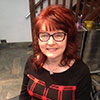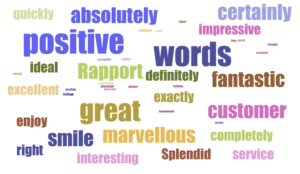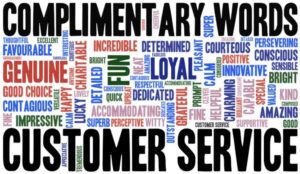We worked with Jacqui Workman, the owner and managing director of KMB, to discuss the language choices that sales advisors should avoid.
In doing so, we came up with ten words and phrases that are likely to damage the quality of sales conversations, as shown below.
1. “My name is”
This is a typical sales phrase that is used when a sales advisor introduces themselves, but in real life you would never use this phrase. It makes the introduction sound cold and salesy, so just use your name instead (e.g. “I’m John”).
2. “How are you today?”
This phrase is too generic to build genuine rapport. Build rapport if you have to by asking how the weather is where they are or commenting on relevant and recent news stories. Better still, just introduce yourself and get into the reason you are calling.
3. “This won’t take long”
You are flagging that you are actually taking up the customer’s time by saying “take long”.
This statement and others like “all it is, it’s just a quick call as we may be able to help you” highlights that this call is not one of importance. You are flagging that you are actually taking up the customer’s time by saying “take long”. This is a topic that it is better to avoid.
4. “Great, great”
Saying phrases such as “great, great” – or any other double phrase (chat gapping) – are an indicator that the sales advisor is not interested in the conversation at all. The customer will likely pick up on this, so remember to be assertive with your verbal nods.
5. “Just…”
This and similar words and phrases – such as “all it is”, “we may/might”, “it’s not important” – are potentially brand damaging. Your product or service should be important, and this language suggests that the sales advisor isn’t really that interested!
6. “They are in your area”
Another major issue is the use of the phrases “pop in” or “they are in your area”, as this does not qualify or confirm an appointment. This often leads to a sales representative turning up for a coffee and a chat, but actually the decision maker is not there or doesn’t have the time to see you.
7. “Certainly”
Other examples to avoid include “absolutely”, “definitely” and “obviously”.
Would you use this word in everyday conversation? I thought not. Yet, it is a common part of contact centre conversations. Sales advisors that use the word as so: “I certainly will make sure…” often sound fake, so it’s better to just remove the word altogether. Other examples to avoid include “absolutely”, “definitely” and “obviously”.
8. “You need to”
In sales, it’s very important to make suggestions and not to give instructions. This means saying things like “I suggest that you”, instead of “you need to”. Recognise that the customer doesn’t “need” to do anything, but you can suggest ways to make their lives easier. Taking on a friendly persona is much more beneficial than a parental persona.
9. “Guarantee”
For a service advisor, the term “guarantee” can be a nice buzzword. However, in terms of sales, it has become a bit of a cliché. After all, a guarantee doesn’t mean anything to a potential customer, it just alerts them to the fact that this is a generic sales call. This is not what you want, you want to stand out. Offer warranties, not guarantees.
10. “Maybe”
Customers don’t buy from people they don’t trust. So, “maybe” and its other equivalents like “perhaps”, “probably” and “possibly” should be excluded from a sales advisor’s language. However, as long as the advisor knows their stuff, this is unlikely to be a problem.
Ten Words and Phrases You Should NOT Use on a Sales Call
- My name is
- How are you today?
- This won’t take long (OR ‘all it is’ / ‘it’s not important’)
- Great, great
- Just
- They are in your area
- Certainly (‘absolutely’ / ‘definitely’ / ‘obviously’)
- You need to
- Guarantee
- Maybe (‘perhaps’ / ‘probably’ / ‘possibly’)
How to Improve Contact Centre Sales Language
The obvious next step is to implement a word ban. However, as discussed in our article “Why Removing Negative Words Could Hurt Your Contact Centre“, doing so could take the natural ‘feel’ away from the conversation. This could damage an advisor’s ability to build rapport.
So, the best solution is to teach better practices that will naturally improve the words and phrases that advisors use.
While we have noted some better practices for the examples above, and increased training is often the answer, here are three quick fixes to help improve sales language.
Analyse Successful Calls
Listen to the call recordings of successful sales calls and consider what the advisor seemed to do well.
Look for patterns within the call recordings, thinking about what each of these successful calls had in common.
Look for patterns within the call recordings, thinking about what each of these successful calls had in common, especially in terms of call handling language and techniques. These techniques can then be taught during induction and refresher training sessions.
Create Cheat Sheets
After you’ve analysed your successful calls, why not add the words and phrases that seemed to add great value to the successful calls to a cheat sheet? This sheet can then be looked at by advisors in between calls and referred back to when they need it.
The words and phrases can also be used when developing a script framework, although sales advisors shouldn’t be asked to stick to this exactly.
Use Techniques Like…
Feel, Felt Found
A classic technique when overcoming a sales objection is to use the three words “feel, felt and found” together. For example: “I understand why you FEEL that way. This happened to me before and I FELT the same. But, what I’ve FOUND is…”
Who, What and Why
Another technique, as explained by Michael Melhado in the article “21 Top Tips for Appointment Setting“, is called “Think Who, What and Why”. This technique should be used after the initial greeting and follows the system of saying ‘WHO we are, WHAT we do and WHY we’re calling’. This helps advisors to remember to present the reason for the call as quickly as they can.
In Summary

Jacqui Workman
Using the right language in the contact centre is key to building rapport and developing better customer relationships. However, using the ten words and phrases that are highlighted above can have the opposite effect.
So, now that you know the sales language to avoid, what alternatives can you use? While we have listed a few ways to improve your sales words and phrases above, we have some more in-depth advice in our article: The Right Words and Phrases to Use on a Sales Call
Thanks to Jacqui Workman, the Owner and Managing Director of KMB, for her help in putting this article together.
Author: Robyn Coppell
Reviewed by: Megan Jones
Published On: 6th Jun 2018 - Last modified: 14th Aug 2025
Read more about - Skills, Editor's Picks, Jacqui Workman, Language, Skill Development, Telesales



































